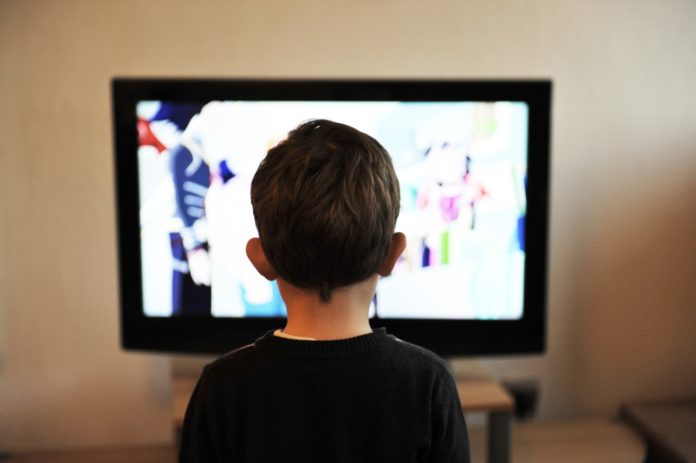Schools started back again after a long summer holiday and we all are getting back to our routines. During holidays our daily routines diverge a bit which is perfectly normal and in fact expected and wanted. We tend to be more flexible and lenient with our rules as parents over the summer holidays. Readjusting the rules back again for school year can sometimes be challenging; particularly the rules around the use of tablets, phones and TVs. In this article I wanted to share some tips about how to manage your children’s screen time.
- Phone/tablet/TV use in itself isn’t bad. All these are amazing devices that help us on a daily basis. Do not automatically think that screen time is a horrible thing you must protect your children from. On the contrary, you can use all these devices to your child’s benefit. Did you know that knowing popular cartoon characters and songs actually can help preschoolers make friends? Children now are growing up with mind blowing technological advances. Teach your children what all they can do with these devices, more than just video watching. Practicing languages, playing strategy games, coding etc.
- Before setting up any screen time rules, have a family discussion together with your child. Ask what she/he wants and explain what your expectations are in terms of which videos to watch, for how long, how often, when etc. Have a hearty conversation and hear each other. At the end, write down the rules that you all happily agree, sign and hang it somewhere visible.
- Have screen time rules for yourself too. If you want your child to learn something, you should do it yourself first. Being a good role model is extremely important. Put your phone away when you are playing with your child. Don’t keep the TV on when you are not actively watching it. Background noise is as damaging as watching long hours of TV.
- Use concrete ways of practicing the rules so your child- who does not grasp abstract terms yet- can understand you. In my house, we use screen time tickets. We made them ourselves from cardboard, looking just like cinema tickets. Each ticket is worth 30 mins of screens. You may also want to use a clock that is easy to follow for your child.
- Give enough screen time to your children. A very short session might lead to more frustration. 30 to 45 minutes of screen time at a time is ideal. More than 45 minutes is not good at one go for children’s cognitive, social, and physical development. Kids (2-5 years old) can be allowed to a maximum of 1 to 2 hours of screens a day but never allow your child to sit for 2 consecutive hours in front of TV.
- Create regularity in screen time; such as 30 mins of videos while dinner is being prepared.
- Try to watch together and explain what is going on. Co-viewing helps your children understand what they are exposed to and stimulates their cognitive, language, and social development (like reading a book together). It also prevents them from unsafe online world. But if it isn’t possible to co-watch, then make sure they are safe online.
- Do not worry too much about exact minutes. On top of 30mins, I use videos to explain my child something. The other day he was curious about how glass is made; so we watched a few videos about it on top of his screen time. Or he likes to dance a lot and he uses the phone to find music on Spotify. Or he wants to show his friend the new game he is playing on my phone so I give him extra 5 minutes to play it with his friend. If your child is too much on phone a day for whatever reason, next day try to do it much less than regular. Be balanced, try to hear your child, be strict with sensitivity to your child’s needs.
- If your child throws a tantrum once you end the screen time, understand them. Kids are not great at emotion regulation yet. When they are frustrated they do not know what to do with such emotions. So tell them ”you understand they are sad/ frustrated (name the emotions) and that you would also feel the same if something you liked so much would be taken away but…’’ and here refer them to the rules you decided together at the family meeting and stick to the rules.
- 1 minute before the screen time is over, remind your child that time will be up.
- Try not to ask your child to end a screen time in the middle of a video or game. Instead, sit next to your child, watch together, comment on the video and once it is finished take the tablet/phone away with a positive closure of the screen time.
- Shut off autoplay on Netflix and Youtube so the next video doesn’t automatically start playing once a video is over.
- Teach your child about online safety. Kids know the idea of viruses and microbes as agents that get them sick. Similar idea applies here as well.
- Lastly, do not feel guilty about screen time. Just use it with your control over it and for the benefit of your family. We all need to have a quiet shower or 15 minutes of undisturbed conversation at a dinner at a restaurant every now and then 🙂 An overloaded, stressed parent can use screen time for 30 minutes or so to unwind sometimes. However do not let screens turn into a regular resource of ”me time’’ for yourself. If that is the case, you need to check what causes you to be stressed and how else can you create time for your self.
I personally find being a role model and putting down your own phones when you are spending time with your family and children as the most important aspect of managing your kids’ screen time. So, it is time to turn the mirror to ourselves.
For Eindhoven News: Elif Durgel
 *Elif Durgel is a psychologist who specializes in expat parenting and child development in multicultural contexts. She is running Roots and Wings Parent Academy .
*Elif Durgel is a psychologist who specializes in expat parenting and child development in multicultural contexts. She is running Roots and Wings Parent Academy .
















